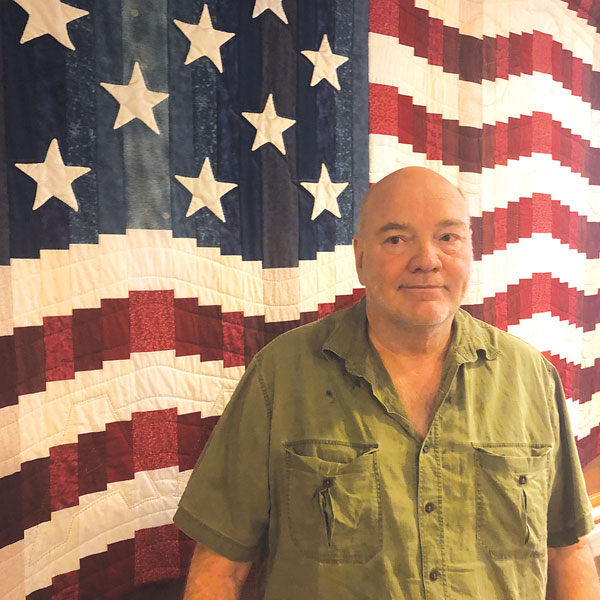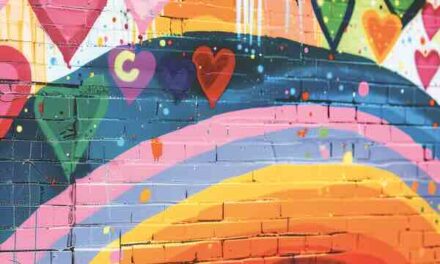For me, 2020 ended with the worst news. My brother Milton, the one I call “Brotherman,” died from COVID.
The year brought us a pandemic, election confusion and economy shutdown, but most especially death. Johns Hopkins reported 300,000 U.S. deaths the week my brother died.

Of course, you may dismiss the Hopkins number as inaccurate because it includes people with comorbidities or “preexisting conditions.” If so, you’re also saying my brother’s death didn’t count because he had high blood pressure, diabetes and obesity.
That means you may share his most deadly comorbidity—gullibility.
He believed all the social media garbage. He followed the anti-masker, anti-vaxxer, anti-science, flat-earth folks who posted, reposted and emailed crap to anyone who dared click a link.
As a result, he became “noncompliant,” a medical term meaning he often refused to take his insulin, blood pressure pills or psychiatric medication.
In early 2019, I noticed the detrimental impact, so I had him placed in the Southern Nevada State Veterans Home. With its state-of-the art, round-the-clock attention, I expected him to live another 10 to 15 years.
But like many care facilities, it couldn’t keep COVID completely at bay—most especially for my brother because Milton refused to wear a mask. Given his viewpoint, the staff confined him to the safety of his room.
Nevertheless, the virus came calling.
When he answered that call, he phoned me.
“I’m having trouble breathing,” he said.
“This is an emergency! Press your staff call button.”
“I can’t find it,” he said.
I hung up and called the front desk.
That evening, Brotherman was hospitalized, and our phone calls continued.
“They’re gonna say I have COVID only because they get more money by padding the COVID numbers,” he said, echoing much of the social media nonsense.
“Don’t let them stick a breathing tube down my throat,” he added, referencing the procedure called intubation. I’d helped him complete an advance directive several times, so I knew he didn’t want to be placed on a respirator.
“OK, I will do all I can,” I said.
But I failed him there. Not one word from his chaplain brother such as, “I know you’re scared. I’m scared too. It’s ok to be scared.”
Or maybe, “I’m 500 miles away, but I’m with you.”
Hours later, Milton reversed his long-sworn position. That’s because if you ask a person who can’t breathe, “Can we put you on a respirator?” he’s going to say, “Hell, yes!”
Milton said, “yes,” and that’s the last I heard him speak.
The week before Christmas, the palliative-care nurse called to talk about letting him go. She said my brother could only survive with the permanent presence of a respirator, feeding tube and dialysis machine.
I knew from his advance directive that wasn’t what Brotherman wanted, so I gave permission to remove him from life support.
He died two hours later.
So I ask, does his death count?
After all, for years he was a “noncompliant” obese diabetic who wouldn’t take his blood-pressure meds. Perhaps the anti-science community is right. Brotherman didn’t die of COVID. He died of his comorbidities.
But those comorbidities weren’t physical. They were spiritual. They are known by many names—denial, gullibility, ignorance and hate.
Milton’s real cause of death was the fabrications spread by the anti-science people, anti-vaxxers, flat-earthers and 5G coronavirus conspirators. He may not have swallowed their bleach, but he sure drank the Kool-Aid.
Milton bought their “health supplements” and subscribed to their YouTube channels, Facebook pages and email newsletters.
These people also have names, but I prefer to call them egomaniacal evil charlatans who prey on the weak minded and weak willed. You may Google those conspirators if you must, but I won’t allow them space in the same print as Brotherman.
Their lies killed my brother—not COVID.
As long as I remain on this earth, I will demand that my brother Milton’s death be counted—and his life always remembered.
Norris Burkes can be reached at comment@thechaplain.net. Follow us on Facebook, Twitter and Instagram: @insidesacramento. Burkes is available for public speaking at civic organizations, places of worship, veterans groups and more. For details and fees, visit thechaplain.net.















